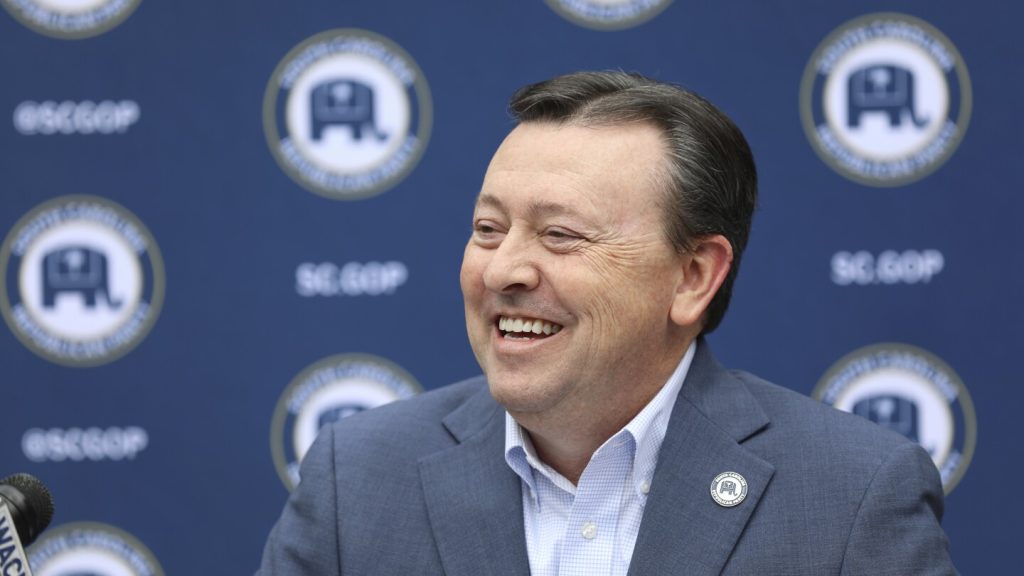Democrats faced heavy losses in the South Carolina state elections this week, as Republicans maintained their control of both the Senate and the House. The GOP now holds a 34-12 advantage in the Senate, marking the first time they have had a two-thirds supermajority in the chamber. In the House, Republicans held on to 87 seats in a 124-member chamber. With their majority, Republicans can now put constitutional amendments on the ballot without needing any Democratic votes. Despite tight races in two Senate seats triggering mandatory recounts, Republicans were able to maintain their momentum and sweep the elections.
Republican Senate Majority Leader Shane Massey expressed a desire to utilize the party’s 34 senators effectively, potentially pursuing conservative goals such as loosening gun laws and implementing a total ban on abortion. With 13 new members set to join the Senate in 2025, the ideological composition and priorities of the Republican caucus may shift. South Carolina Republican Party Chairman Drew McKissick celebrated the party’s success in flipping multiple seats in the state and emphasized the need for continued strategic planning for future elections. The wave of Republican victories in South Carolina elections has been ongoing since the 1990s, with redistricting playing a significant role in maintaining Republican dominance.
The GOP’s ability to attract rural voters was evident in their success in flipping sheriff’s and coroner’s offices from Democrat to Republican control. The party’s winning streak in South Carolina can be attributed to factors such as straight ticket voting, where Republicans had a significant advantage over Democrats. Despite Democrats managing to protect some key seats, particularly in urban areas, the overall results demonstrated the enduring strength of the Republican Party in the state. South Carolina Democratic Party Chair Christale Spain acknowledged the challenges faced by Democrats in recruiting candidates and overcoming the strong support for Republicans, particularly in state Senate races.
Looking ahead to future elections, McKissick and the Republican Party plan to build on their recent gains, targeting key races for 2026, including the open governor’s seat and Lindsey Graham’s U.S. Senate seat. While celebrating their victories, McKissick acknowledged the transient nature of political success, citing historical examples where electoral fortunes shifted dramatically. He emphasized the importance of staying focused on delivering a relevant message, effective organization, and fundraising to ensure continued electoral success. Despite the current Republican dominance in South Carolina, both parties are gearing up for future battles, recognizing the ever-changing landscape of politics and the need to adapt to shifting voter priorities.


